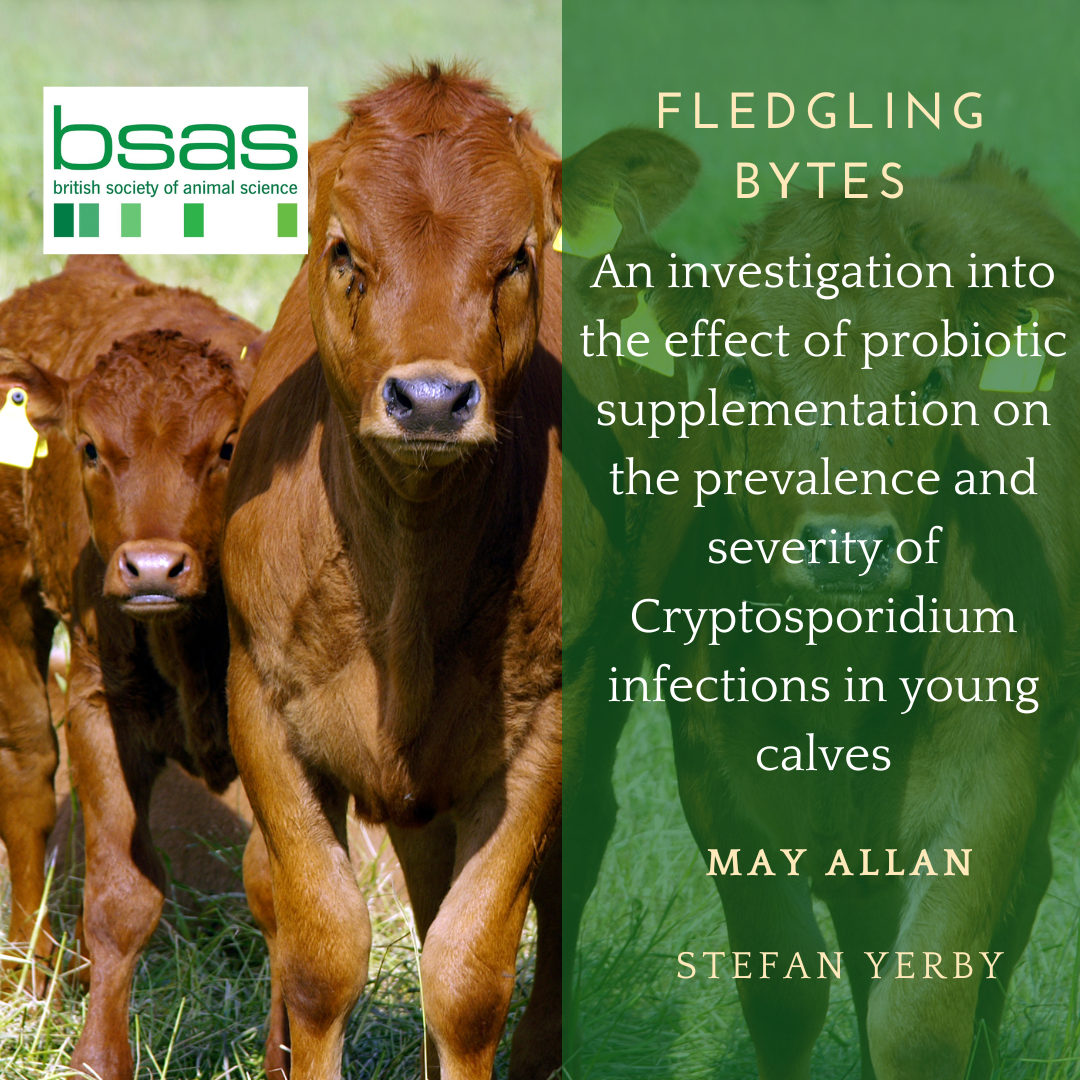
An investigation into the effect of probiotic supplementation on the prevalence and severity of Cryptosporidium infections in young calves

This study placed second in the 2024 Thesis of the Year Award and was completed as part of May Allan’s studies for a BSc (Hons) in Applied Animal Science from SRUC and The University of Glasgow.
Orally supplementing calves with probiotics for the first two weeks of life can decrease the incidence and impact of Cryptosporidium infections, leading to healthier and better performing calves.
The aim of this study was to investigate the impact of probiotic supplementation on the prevalence and severity of Cryptosporidium infections in calves within a commercial environment. Cryptosporidium parvum is a protozoan parasite which infects the gastrointestinal tract of calves, causing a disease called Cryptosporidiosis. Symptoms of Cryptosporidiosis are diarrhoea and dehydration, which can have negative consequences for calf performance and welfare, and in extreme cases, result in death. Veterinary interventions to treat Cryptosporidiosis are often drug-based, however, the increasing risk of drug-resistance means that alternative treatment strategies, such as probiotic supplementation, require investigation. Probiotics are defined as live microorganisms that provide health benefits to their host. Probiotic supplementation may be able to limit, or prevent, Cryptosporidium infections in calves by enhancing gut health and immunity.
Fifty calves at Roadhead Farm, Biggar, were enrolled into this six-week study and split evenly into control and treatment groups; treatment calves received 30 ml of Precision Microbe’s calf probiotic in their morning milk feed for the first 14 days of life. The probiotic administered in this trial contained Enterococcus faecium, a bacterium that can promote gut stability by positively influencing populations of intestinal microbes. Calf weight, morning and evening milk intake, body temperature and faecal consistency were measured daily, and faecal samples were collected every other day to test for the presence of Cryptosporidium.
Researchers at SRUC and The University of Glasgow found that calves supplemented with probiotics had lower populations of Cryptosporidium in their faeces, higher intakes of milk, increased weight gain, improved faecal consistency and lower body temperature, compared to calves that did not receive probiotics. These results suggest that probiotics can decrease the levels of infection of Cryptosporidium in calves, as well as reducing the severity of symptoms associated with Cryptosporidiosis, demonstrated by reduced diarrhoea and improved body temperature regulation. This research indicates that including probiotics in neonatal calf milk feeds could be an advantageous strategy to improve animal health, performance and welfare by decreasing calf vulnerability to Cryptosporidium infections. Probiotics may be an effective alternative to drug-based treatments for Cryptosporidiosis.
Summarised by Stefan Yerby, PhD researcher, The University of Glasgow.
